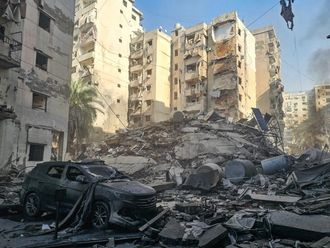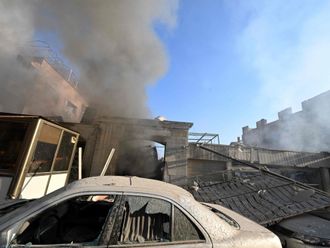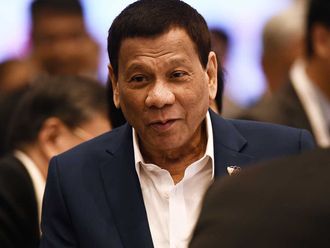Dubai: For years Afghanistan ranked as the world’s least peaceful country. But not anymore.
According to a report by the Institute for Economics and Peace (IEP), Syria replaces Afghanistan in the Global Peace Index (GPI) profiling 162 countries.
The Middle Eastern country has been, for more than three years, a theatre for a civil war that has killed hundreds of thousands of people and displaced millions.
This, however, does not mean that things have greatly improved in Afghanistan.
Daniel Hyslop, Vice President Global Head of Research at IEP, says the situation has only become much worse for Syria.
“It is much more to do with the fact that Syria has significantly deteriorated. So if you look at the situation now, you have up to 120,000 dead and 35 per cent of the population are either refugees or displaced … Afghanistan has actually improved.”
Yet, the deterioration in Syria was much more rapid than the improvement in Afghanistan, he added.
IEP, which is a non-profit research organisation headquartered in Sydney, Australia, and has offices in London and New York, added that the most peaceful region of the world continues to be Europe, while Iceland is the most peaceful country in the world.
On the other hand, the least peaceful region is South Asia. South Sudan experienced the largest drop in the index this year falling to 160th and now ranking as the third least peaceful country. Major deteriorations also occurred in Egypt, Ukraine and Central African Republic. Georgia showed the largest improvement, amid peace talks.
According to the IEP’s report, the ten countries most likely to deteriorate in peace in the next two years are Zambia, Haiti, Argentina, Chad, Bosnia and Herzegovina, Nepal, Burundi, Georgia, Liberia and Qatar.
Though Qatar features among the top peaceful countries in the region at present, Hyslop, explained that the factors taken into consideration in classifying the countries’ level of peace, include the good governance, distribution of resources, transparency, and social cohesion.
Any imbalance in the factors could lead to instability in any country, he added.
IEP added that the global violence impacted the global economy by US$9.8 trillion or 11.3 per cent of GDP in the last year, an increase of US$179 billion YOY, through upward revisions of China’s military expenditure and the number and intensity of internal conflicts.












